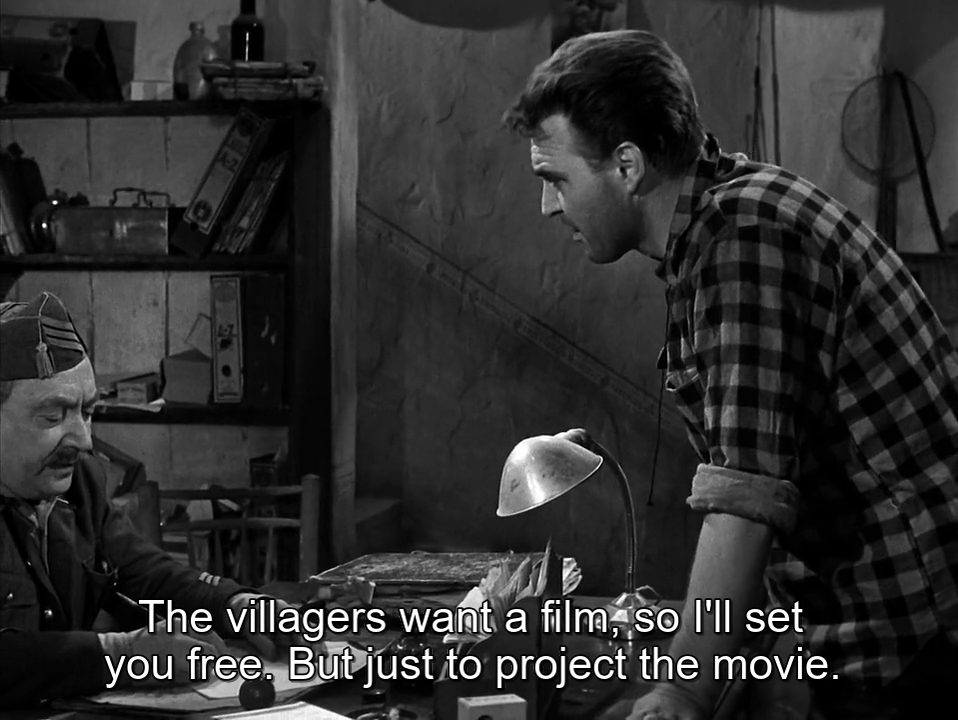
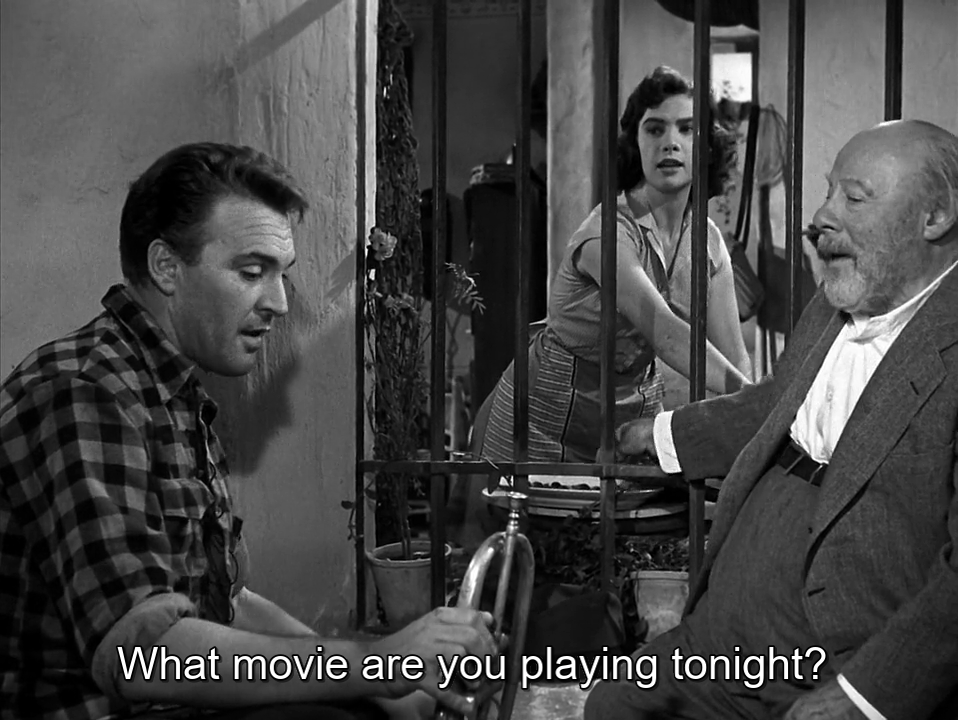
THE ROCKET FROM CALABUCH (Luis García Berlanga)
the sad year of 1956...
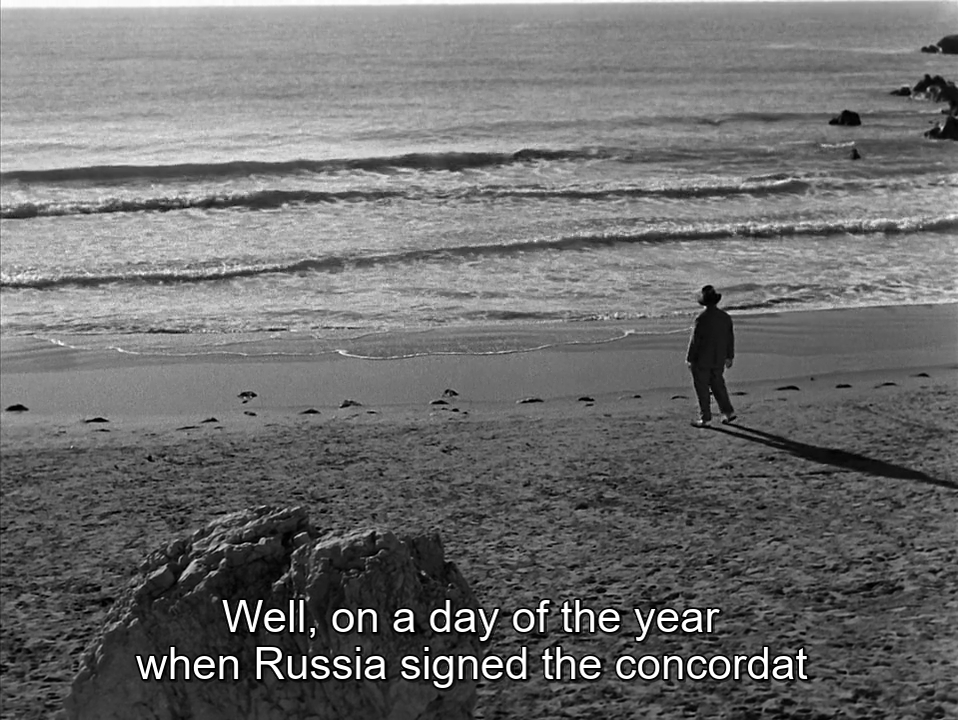
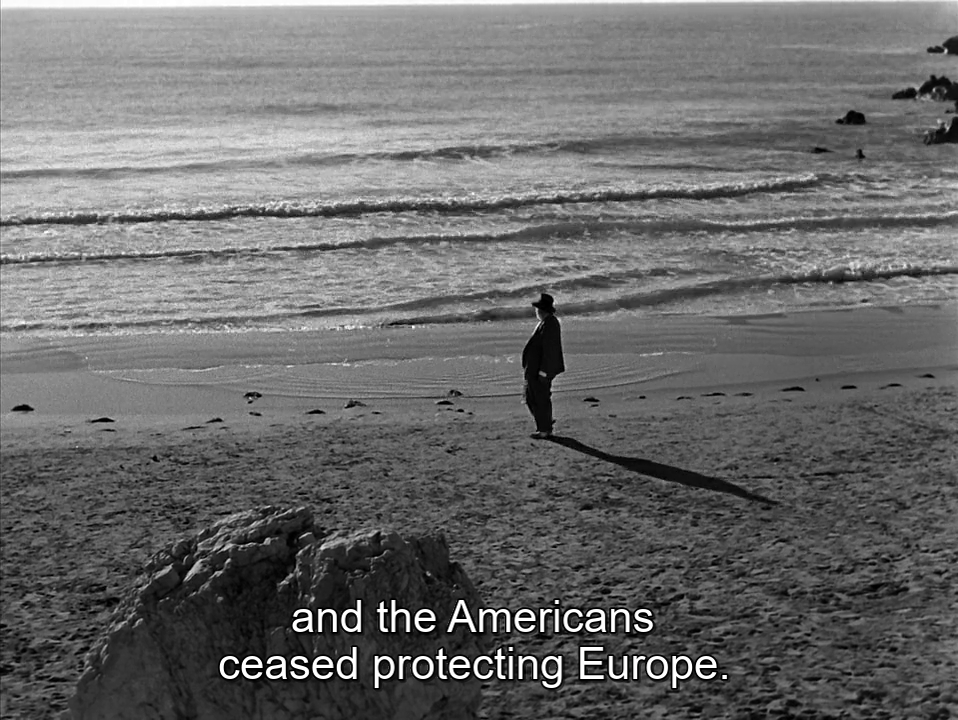
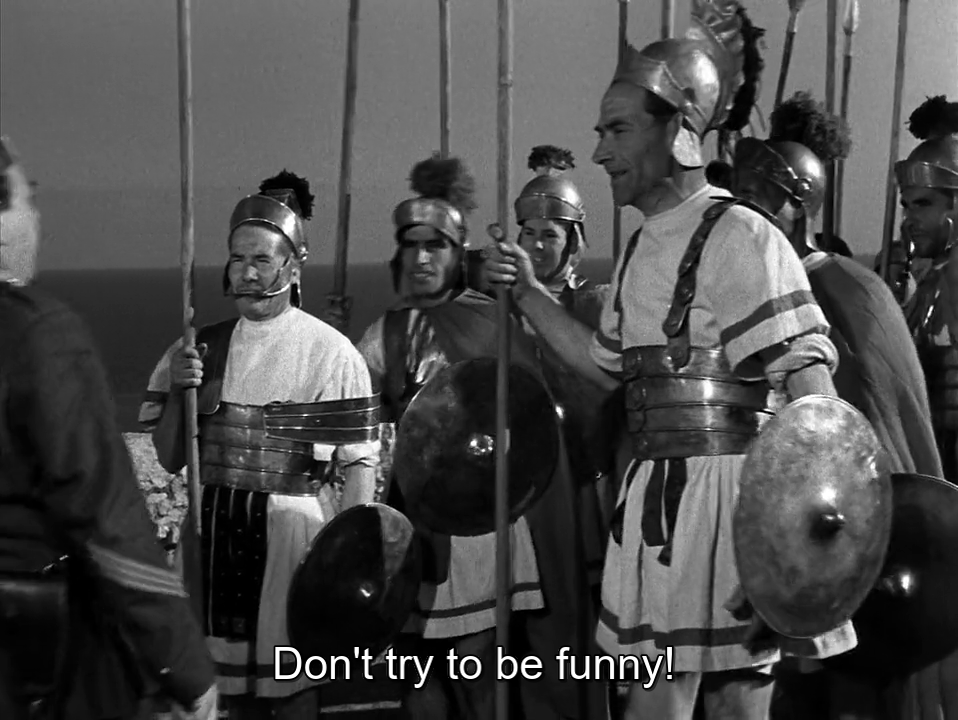


Yeah, the Cahiers critics were notoriously terrible when it came to assessing the quality of French cinema. But it wasn't only the young one's, as one of the worst offenders was André Bazin.Evelyn Library P.I. wrote: ↑Sun Jul 14, 2024 10:08 pm Marie-Antoinette, reine de france (Jean Delannoy)
A textbook example of the tradition de la qualitie that Truffaut opposed in his famous '54 article. It's far more artistically interesting than the Cahiers crowd would have you believe.
I'll disagree with both sides on this one.wba wrote: ↑Thu Jul 25, 2024 10:20 amYeah, the Cahiers critics were notoriously terrible when it came to assessing the quality of French cinema. But it wasn't only the young one's, as one of the worst offenders was André Bazin.Evelyn Library P.I. wrote: ↑Sun Jul 14, 2024 10:08 pm Marie-Antoinette, reine de france (Jean Delannoy)
A textbook example of the tradition de la qualitie that Truffaut opposed in his famous '54 article. It's far more artistically interesting than the Cahiers crowd would have you believe.
In my opinion French cinema before the French "new wave" was generally far more interesting (and much better) than after 1960.
In theory I'd agree with what you're saying, but in the end it probably comes down to personale taste.St. Gloede wrote: ↑Thu Jul 25, 2024 1:23 pmI'll disagree with both sides on this one.wba wrote: ↑Thu Jul 25, 2024 10:20 amYeah, the Cahiers critics were notoriously terrible when it came to assessing the quality of French cinema. But it wasn't only the young one's, as one of the worst offenders was André Bazin.Evelyn Library P.I. wrote: ↑Sun Jul 14, 2024 10:08 pm Marie-Antoinette, reine de france (Jean Delannoy)
A textbook example of the tradition de la qualitie that Truffaut opposed in his famous '54 article. It's far more artistically interesting than the Cahiers crowd would have you believe.
In my opinion French cinema before the French "new wave" was generally far more interesting (and much better) than after 1960.
Traditional, well-made narrative dramas of a degree of prestige, i.e. "tradition de la qualitie", i.e. "middle-brow", can be just as strong and fantastic as artistically inspired cinema, they are just different (and it is a spectrum - you can do a narrative story in ways that are cinematically intriguing and exciting). I never really got the issue the Cahiers writers had with the specific tradition in France, while they were fawning over a lot of classic Hollywood directors. The US had all the same issues, if not worse, as they had no Cocteau, Grémillon, Eptstein, etc. Obviously, they did not have an issue with all classic French directors, and if I recall Truffat walked it back a bit later in his life, but what is the logic behind putting down Marcel Carné and Julien Duvivier while holding up Howard Hawks and Nicholas Ray, for instance? The big French studio directors had some excellent minds among them. Sure, you also had really bland directors as well, like Autant-Lara, which got a lot of ire from the wave, but all countries have them in the mainstream, and still do. Doesn't change that the French studio system could put out an undisputed masterpiece like Children of Paradise, which is IMO better than anything Truffaut ever managed to make.
However, my sensibilities and taste are significantly more drawn to cinematic playfulness and creativity than traditional narrative cinema, so the 60s is where it's at for me.
Yeah, exactly, that very much comes down to taste. I have JLG, Varda and Rohmer among my top 10 directors, so my vote will be cast with the latter. I do have Bresson in my top 10 too (yeah, French heavy ...), though he mostly made films over the same timespan as the new wave (and he was obviously a director the Cahiers writers, especially Bazin, were very fond of).wba wrote: ↑Thu Jul 25, 2024 1:57 pm In theory I'd agree with what you're saying, but in the end it probably comes down to personale taste.
I have nothing per se against post 1960s cinema and love many directors and films. But in my opinion, the French directors who got a start before the New Wave (and that's over 60 years of French cinema) were generally better and more creative as artists. And most importantly: there were simply more talented directors, quantity-wise, than after 1960.
I think the issue could at least partially be a wish and need to define yourself through opposition and contradiction. I suppose it is motivating, and gives purpose, etc. and that it must also be frustrating seeing your own industry be at a bit of a standstill and want to push on. I remember Godard in the late 60s dismissing New Hollywood/Bonnie and Clyde for being so far behind the curve, and Hollywood having money rather than ideas. They might also just have caught with the modernist bug of believing things always need to change and progress - which is exciting - but hardly a moral requirement for art. You can be a trail-blazers and do something new without dismissing what was for the sake of it, though, of course, if they just thought most French mainstream quality dramas were a bit - or very - flat and stuffy - that's fair - a decent bit of it - cue Autant-Lara, etc. is for me as well - and of course Autant-Lara was huge. Today, and for many decades, quite a few of the biggest French directors have just slid out of the conversation - as critics, and cinephiles, realized they weren't that interesting to them - while the big US names that the Cahiers directors championed have remained on the record, so a part of what we are seeing as the highlights of studio cinema from the 30s, 40s, and 50s is through the lense of the films spoke to critics of the Cahiers generation and later.Thus, in my opinion Bazin and other Cahiers critics of the 1950s, were mostly blind as to the incredible artistic wealth the French cinema had created.
On the other hand, they were perfectly able to see it in lots of foreign films, especially in US cinema.
I find this to be generally the case throughout the 20th century in many countries, where the own artistry isn't really appreciated when compared to "foreign" films.
My favorite French directors are Jacques Doillon and Jean Rollin, so that doesn't exactly prop my view.St. Gloede wrote: ↑Thu Jul 25, 2024 10:16 pmYeah, exactly, that very much comes down to taste. I have JLG, Varda and Rohmer among my top 10 directors, so my vote will be cast with the latter. I do have Bresson in my top 10 too (yeah, French heavy ...), though he mostly made films over the same timespan as the new wave (and he was obviously a director the Cahiers writers, especially Bazin, were very fond of).wba wrote: ↑Thu Jul 25, 2024 1:57 pm In theory I'd agree with what you're saying, but in the end it probably comes down to personale taste.
I have nothing per se against post 1960s cinema and love many directors and films. But in my opinion, the French directors who got a start before the New Wave (and that's over 60 years of French cinema) were generally better and more creative as artists. And most importantly: there were simply more talented directors, quantity-wise, than after 1960.
At first, I was confused when you said "more creative as artists", but then I realized that we're of course talking about the birth of cinema as well - a period I'm not too excited about, but certainly filled with creativity - as was the 20s, though besides outliers like Vigo, Clair, Gremillion, and Cocteau I don't think the studio sound era directors were comparable to the new wavers in creativity in any way, so if that's your view I'd love to hear more about which films and directors you think embody this the best. Always looking to watch more from that period of French cinema in general, as it is severely lagging behind the 60s and 70s for me in terms of views.
I think the issue could at least partially be a wish and need to define yourself through opposition and contradiction. I suppose it is motivating, and gives purpose, etc. and that it must also be frustrating seeing your own industry be at a bit of a standstill and want to push on. I remember Godard in the late 60s dismissing New Hollywood/Bonnie and Clyde for being so far behind the curve, and Hollywood having money rather than ideas. They might also just have caught with the modernist bug of believing things always need to change and progress - which is exciting - but hardly a moral requirement for art. You can be a trail-blazers and do something new without dismissing what was for the sake of it, though, of course, if they just thought most French mainstream quality dramas were a bit - or very - flat and stuffy - that's fair - a decent bit of it - cue Autant-Lara, etc. is for me as well - and of course Autant-Lara was huge. Today, and for many decades, quite a few of the biggest French directors have just slid out of the conversation - as critics, and cinephiles, realized they weren't that interesting to them - while the big US names that the Cahiers directors championed have remained on the record, so a part of what we are seeing as the highlights of studio cinema from the 30s, 40s, and 50s is through the lense of the films spoke to critics of the Cahiers generation and later.Thus, in my opinion Bazin and other Cahiers critics of the 1950s, were mostly blind as to the incredible artistic wealth the French cinema had created.
On the other hand, they were perfectly able to see it in lots of foreign films, especially in US cinema.
I find this to be generally the case throughout the 20th century in many countries, where the own artistry isn't really appreciated when compared to "foreign" films.
Now that's two surprising picks. I really like Doillon, though I have seen little from the 80s onwards and nothing post-Ponette, as most were reviewed very poorly. I should do a deep-dive. Rollin on the other hand is one of the few directors I actively dislike, but I know he has a decent cult following (even if I can't see "it" at all).
Hmmm, I had never heard that before, so I decided to check with IMDb. These are obviously not super accurate numbers by a long shot, but below are the feature films released per decade according to IMDb's country tags:But to me it's not the "special" or outstanding films and directors that define an era, but the general quality of films. And I also think the studio era of the 30s, 40s and 50s in France was generally speaking great (same as in Hollywood or Germany or Japan or Italy, etc.). The young filmmakers should have just made their films the way they liked (which they did, and which were fine), instead of complaining about the old guys. I just don't see US, French, German, Italian, Japanese cinema - or any other country that had a big output - getting better after 1960, but merely that fewer films were made, as cinema became less relevant as much fewer people went to the movies.
I'm calling some of these outliers because they were essentially creating art cinema rather than "tradition de la qualitie", i.e. expressionists, minimalists, etc. I called Clair an outlier earlier despite being more of a traditional studio director because he really made some inspired cinematic choices in the early 30s. Most of the others are definitely more traditional film directors, and I don't think their "creativity" compares to the new wave, but the strength of their cinema does.As to my preferred French directors pre-New Wave, it's the usual suspects: Jean Grémillon, René Clair, Jean Epstein, Marcel Carné, Henri-Georges Clouzot, Jean-Pierre Melville, etc. and I've seen great films by Marcel L'Herbier, Pierre Chenal, Robert Bresson, Henri Decoin, Julien Duvivier, Richard Pottier, Jean Delannoy, Jean Renoir, and some others.
I don't think they were "outliers," as most had been working regularly inside the French industry for decades.
Sadly, very true.The only thing the Cahiers critics have accomplished through deriding most of their older colleagues, is that they are better known today then their predecessors and that few people outside of France watch many French films pre-1960. So instead of strengthening the history of French cinema through their own great work as directors, they have rather weakened its legacy in stating that their films would be not just "different" but better than what came before. It's a bit like if Penn, Coppola or Spielberg had been film critics during the 1960s and wrote before the New Hollywood era that they were gonna make better films than the stuffy studio work of a John Ford or an Alfred Hitchcock during the 1950s.
Please do!I haven't seen anything by Autaunt-Lara, yet, so how I'll react to that will be very interesting for me in the future.
No one beats JLG for me, but I'd definitely take Carné over Truffaut, and Epstein or Gremillon over Rivette or Chabrol.As for personal taste:
I prefer Clouzot to Godard or Carné to Truffaut, though I enjoy the films of Godard and Truffaut as well, and if I had to decide between watching a film by Rohmer or Rivette or one by Epstein or Gremillon, the latter two would definitely win.
Yes, this is much of why I gravitate to this era (and the silent era before it). Exploring the depths is far more fulfilling! The average movie is far better made than in the '60s and '70s and beyond, for my taste, though I'm sure fans of the era will disagree. I think that television and colour film are both culprits as well: the average filmmaker was no longer trained in over-the-shoulder shot compositions and chiaroscuro lighting.wba wrote: ↑Fri Jul 26, 2024 10:47 am But to me it's not the "special" or outstanding films and directors that define an era, but the general quality of films. And I also think the studio era of the 30s, 40s and 50s in France was generally speaking great (same as in Hollywood or Germany or Japan or Italy, etc.). The young filmmakers should have just made their films the way they liked (which they did, and which were fine), instead of complaining about the old guys. I just don't see US, French, German, Italian, Japanese cinema - or any other country that had a big output - getting better after 1960, but merely that fewer films were made, as cinema became less relevant as much fewer people went to the movies.
Yes, that's basically my view as well.Evelyn Library P.I. wrote: ↑Fri Jul 26, 2024 11:37 amYes, this is much of why I gravitate to this era (and the silent era before it). Exploring the depths is far more fulfilling! The average movie is far better made than in the '60s and '70s and beyond, for my taste, though I'm sure fans of the era will disagree. I think that television and colour film are both culprits as well: the average filmmaker was no longer trained in over-the-shoulder shot compositions and chiaroscuro lighting.wba wrote: ↑Fri Jul 26, 2024 10:47 am But to me it's not the "special" or outstanding films and directors that define an era, but the general quality of films. And I also think the studio era of the 30s, 40s and 50s in France was generally speaking great (same as in Hollywood or Germany or Japan or Italy, etc.). The young filmmakers should have just made their films the way they liked (which they did, and which were fine), instead of complaining about the old guys. I just don't see US, French, German, Italian, Japanese cinema - or any other country that had a big output - getting better after 1960, but merely that fewer films were made, as cinema became less relevant as much fewer people went to the movies.
Wow!St. Gloede wrote: ↑Fri Jul 26, 2024 11:29 amNow that's two surprising picks. I really like Doillon, though I have seen little from the 80s onwards and nothing post-Ponette, as most were reviewed very poorly. I should do a deep-dive. Rollin on the other hand is one of the few directors I actively dislike, but I know he has a decent cult following (even if I can't see "it" at all).
Hmmm, I had never heard that before, so I decided to check with IMDb. These are obviously not super accurate numbers by a long shot, but below are the feature films released per decade according to IMDb's country tags:But to me it's not the "special" or outstanding films and directors that define an era, but the general quality of films. And I also think the studio era of the 30s, 40s and 50s in France was generally speaking great (same as in Hollywood or Germany or Japan or Italy, etc.). The young filmmakers should have just made their films the way they liked (which they did, and which were fine), instead of complaining about the old guys. I just don't see US, French, German, Italian, Japanese cinema - or any other country that had a big output - getting better after 1960, but merely that fewer films were made, as cinema became less relevant as much fewer people went to the movies.
France, 1950-1959: 1,340
France, 1960-1969: 1,730
France, 1970-1979: 2,070
US, 1950-1959: 3,501
US, 1960-1969: 3,343
US, 1970-1979: 4,308
West + East Germany, 1950-1959: 1,345
West + East Germany, 1960-1969: 1,324
West + East Germany, 1970-1979: 1,621
Italy, 1950-1959: 1,446
Italy, 1960-1969: 2,487
Italy, 1970-1979: 2,386
Japan, 1950-1959: 3,679
Japan, 1960-1969: 3,981
Japan, 1970-1979: 3,548
The US and Germany had a slight decline in the 60s, but both outgrew the 50s in the 70s. However, France released more feature films decade by decade, almost doubling the output from the 50s to the 70s. Italy, meanwhile, close to doubled the output from the 50s to the 60s - though they were kings of co-productions in that period. Japan, meanwhile, also grew in the 60s, before the decline in the 70s (the crash).
I'm not sure if they were creating art cinema per se, or if they were simply doing what they were interested in inside the established structures and market?St. Gloede wrote: ↑Fri Jul 26, 2024 11:29 amI'm calling some of these outliers because they were essentially creating art cinema rather than "tradition de la qualitie", i.e. expressionists, minimalists, etc. I called Clair an outlier earlier despite being more of a traditional studio director because he really made some inspired cinematic choices in the early 30s. Most of the others are definitely more traditional film directors, and I don't think their "creativity" compares to the new wave, but the strength of their cinema does.As to my preferred French directors pre-New Wave, it's the usual suspects: Jean Grémillon, René Clair, Jean Epstein, Marcel Carné, Henri-Georges Clouzot, Jean-Pierre Melville, etc. and I've seen great films by Marcel L'Herbier, Pierre Chenal, Robert Bresson, Henri Decoin, Julien Duvivier, Richard Pottier, Jean Delannoy, Jean Renoir, and some others.
I don't think they were "outliers," as most had been working regularly inside the French industry for decades.
Yeah, that's just nit-picking of course, as I love some films by all of them - but also need to see much more by all of them (with the exception of Godard, by whom I've seen a lot).St. Gloede wrote: ↑Fri Jul 26, 2024 11:29 amNo one beats JLG for me, but I'd definitely take Carné over Truffaut, and Epstein or Gremillon over Rivette or Chabrol.As for personal taste:
I prefer Clouzot to Godard or Carné to Truffaut, though I enjoy the films of Godard and Truffaut as well, and if I had to decide between watching a film by Rohmer or Rivette or one by Epstein or Gremillon, the latter two would definitely win.
I haven't seen more than a third of his output, but my favorites by Doillon so far (all masterpieces in my book) are, in chronological order:St. Gloede wrote: ↑Fri Jul 26, 2024 11:29 amNow that's two surprising picks. I really like Doillon, though I have seen little from the 80s onwards and nothing post-Ponette, as most were reviewed very poorly. I should do a deep-dive. Rollin on the other hand is one of the few directors I actively dislike, but I know he has a decent cult following (even if I can't see "it" at all).
No, this is only feature films, TV films would probably shoot the later decades up quite a bit more.wba wrote: ↑Fri Jul 26, 2024 12:05 pmWow!St. Gloede wrote: ↑Fri Jul 26, 2024 11:29 amNow that's two surprising picks. I really like Doillon, though I have seen little from the 80s onwards and nothing post-Ponette, as most were reviewed very poorly. I should do a deep-dive. Rollin on the other hand is one of the few directors I actively dislike, but I know he has a decent cult following (even if I can't see "it" at all).
Hmmm, I had never heard that before, so I decided to check with IMDb. These are obviously not super accurate numbers by a long shot, but below are the feature films released per decade according to IMDb's country tags:But to me it's not the "special" or outstanding films and directors that define an era, but the general quality of films. And I also think the studio era of the 30s, 40s and 50s in France was generally speaking great (same as in Hollywood or Germany or Japan or Italy, etc.). The young filmmakers should have just made their films the way they liked (which they did, and which were fine), instead of complaining about the old guys. I just don't see US, French, German, Italian, Japanese cinema - or any other country that had a big output - getting better after 1960, but merely that fewer films were made, as cinema became less relevant as much fewer people went to the movies.
France, 1950-1959: 1,340
France, 1960-1969: 1,730
France, 1970-1979: 2,070
US, 1950-1959: 3,501
US, 1960-1969: 3,343
US, 1970-1979: 4,308
West + East Germany, 1950-1959: 1,345
West + East Germany, 1960-1969: 1,324
West + East Germany, 1970-1979: 1,621
Italy, 1950-1959: 1,446
Italy, 1960-1969: 2,487
Italy, 1970-1979: 2,386
Japan, 1950-1959: 3,679
Japan, 1960-1969: 3,981
Japan, 1970-1979: 3,548
The US and Germany had a slight decline in the 60s, but both outgrew the 50s in the 70s. However, France released more feature films decade by decade, almost doubling the output from the 50s to the 70s. Italy, meanwhile, close to doubled the output from the 50s to the 60s - though they were kings of co-productions in that period. Japan, meanwhile, also grew in the 60s, before the decline in the 70s (the crash).
I suppose that also includes films for TV (which I'm fine with - much quality work there as well).
So that actually means that yes, films in general got artistically worse after the 1960s, for my tastes.
Wouldn't have thought that for the 20th century.
Maybe more films meant quicker shooting schedules and/or less trained artists?
I'd say the distinction is art cinema vs narrative cinema, or more specifically, films carried by visuals, style, form, meaning, etc. vs films carried by story/narrative. It can be made entirely within the studio system. The Japanese New Wave for instance was initiated by the Japanese studio system, the Czechoslovakian New Wave and essentially all art cinema from the old Communist Bloc were done within their studio systems, and so on. It's also a pretty big spectrum, especially if we include experimental films, and you can make commercial art films. 2001 and Solaris were blockbusters with big budgets, but they're both certainly on the art film spectrum in my view, so is last year's Poor Things. I think we're mixing auteur theory here as well. Michael Bay is an auteur. David Leitch is an auteur. Steven Spielberg is an auteur. And so on. Though of course, people may prefer different distinctions and set their spectrums or key differences between KYC based on what they are interested in.wba wrote: ↑Fri Jul 26, 2024 12:15 pmI'm not sure if they were creating art cinema per se, or if they were simply doing what they were interested in inside the established structures and market?St. Gloede wrote: ↑Fri Jul 26, 2024 11:29 amI'm calling some of these outliers because they were essentially creating art cinema rather than "tradition de la qualitie", i.e. expressionists, minimalists, etc. I called Clair an outlier earlier despite being more of a traditional studio director because he really made some inspired cinematic choices in the early 30s. Most of the others are definitely more traditional film directors, and I don't think their "creativity" compares to the new wave, but the strength of their cinema does.As to my preferred French directors pre-New Wave, it's the usual suspects: Jean Grémillon, René Clair, Jean Epstein, Marcel Carné, Henri-Georges Clouzot, Jean-Pierre Melville, etc. and I've seen great films by Marcel L'Herbier, Pierre Chenal, Robert Bresson, Henri Decoin, Julien Duvivier, Richard Pottier, Jean Delannoy, Jean Renoir, and some others.
I don't think they were "outliers," as most had been working regularly inside the French industry for decades.
I always thought that art cinema vs. commercial cinema thing was rather a straw-man created by the French New Wave critics.
I've for example recently watched LES GRANDES MANOEUVRES (1955) by Clair, which I'm pretty sure most Cahiers critics would have disliked (I don't know, if they actually did) and totally classified as "tradition de qualité", when in my opinion the film is completely outstanding and not just reminiscent of Clair's other great works, but also specifically of two outstanding stylists like Lubitsch and Ophuls (which I forgot to mention above, as I'm sure I also forgot some others). I actually thought to myself that this was a film which Lubitsch could and maybe would have directed exactly like that, if he were still alive. It definitely has that specific Lubitsch touch.
Thank you for making me check, as I'd never seen those numbers either.
Thanks for the recs, not seen most. My favourites from Doillon are Les Doigts dans la tête, The Crying Woman and hus debut, L'An 01.wba wrote: ↑Fri Jul 26, 2024 12:24 pmI haven't seen more than a third of his output, but my favorites by Doillon so far (all masterpieces in my book) are, in chronological order:St. Gloede wrote: ↑Fri Jul 26, 2024 11:29 amNow that's two surprising picks. I really like Doillon, though I have seen little from the 80s onwards and nothing post-Ponette, as most were reviewed very poorly. I should do a deep-dive. Rollin on the other hand is one of the few directors I actively dislike, but I know he has a decent cult following (even if I can't see "it" at all).
Les Doigts dans la tête (1974)
La Drôlesse (1979)
La Pirate (1984)
La Vie de famille (1985)
Le Petit Criminel (1990)
Le Jeune Werther (1993)
post-Ponette, I loved RAJA (2003).
Doillon would probably be my sole French director in a Top 10 or 20 of preferred directors.
Nasty!
I should add that I was being a little unfair to Autant-Lara, he has a couple of films I'd consider great, especially Douce.